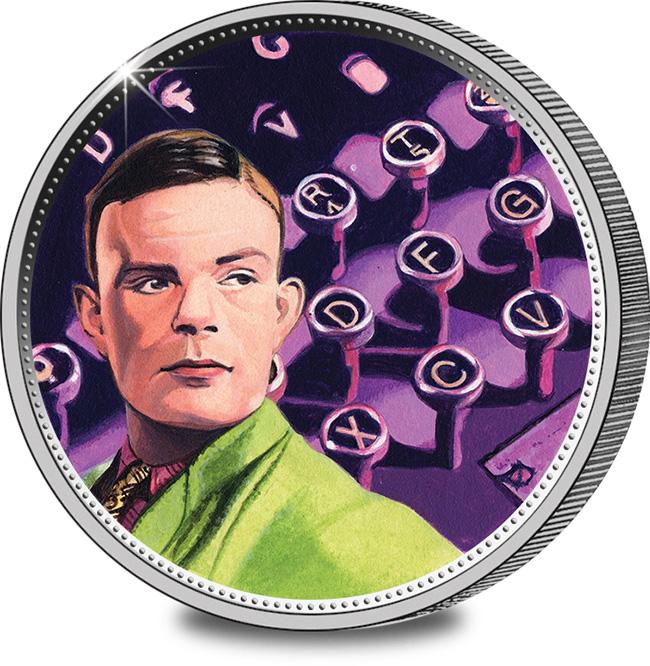
 |
Full name: Alan Mathison Turing
Born: 23rd June 1912
Invention/Achievement: Breaking the
Enigma Code/Developing computer science
Date of introduction/Achievement: During World
War II (1939-1945)
Died: 7th June 1954)
|
It has been estimated that the code breaking work of Alan Turing
and his colleagues at Bletchley Park may have shortened World War
II by between two and four years. Certainly, without the
intelligence this provided it is quite possible that Britain and
its allies might not have countered the U-boat campaign which
threatened to cut our maritime supply lines.
Alan Turing was born in Paddington, London, as the son of an
Indian Civil Servant. From an early age he showed clear signs
of his mathematical ability. After attending Sherborne
School, he studied mathematics at King's College Cambridge, gaining
a first class degree and in 1935 at the young age of 22 he was made
a fellow of King's.
From September 1938 Turing worked part time with GC&CS, the
government code-breaking organisation. In 1939 the Polish
Cipher Bureau had provided GC&CS with details of the German
Enigma coding machine, together with details of their decoding
techniques.
Turing and a Colleague, Dilly Knox, worked to develop a more
robust decryption method. Immediately following the outbreak
of war on 4th September 1939, Turing reported to
Bletchley Park, the wartime HQ of GC&CS. During his time
there he made several crypt analytical advances that significantly
contributed to the success of the team's success.
Two papers that Turing wrote on the subject of the maths of
code-breaking, entitled "Report on the applications of probability
to cryptography" and "Paper on statistics of repetitions", were
considered of such value that they were not released into the
public domain until 2012.
Shortly after arriving at Bletchley Park, Turing had started
designing an electromechanical device - called the bombe - to
assist with deciphering Enigma transmissions. This led Turing
into the new field of computer science, in which he made major
advances.
Following the war, while working at the National Physical
Laboratory, he designed ACE, one of the first stored program
computers. In 1948 he joined the Computing Laboratory at
Manchester University and helped develop the innovative series of
Manchester Computers.
Alan Turing was also a top class distance runner, in line
for a place at the 1948 Olympics until sidelined by injury.
Turing died, by accidental cyanide poisoning or suicide, on
7th June 1954.